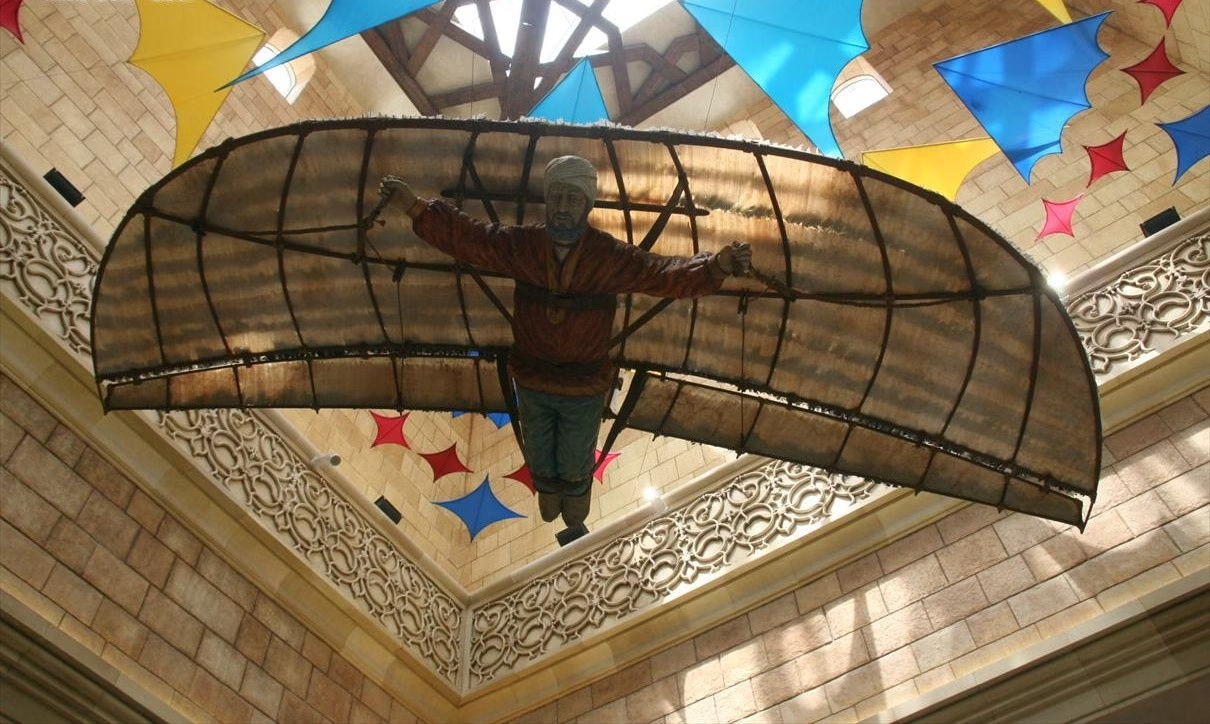Abbas ibn Firnas: The First Man to Fly
In the past, Muslims were leaders in knowledge and invention. One such great man was Abbas ibn Firnas. He lived in 9th-century Al-Andalus, current day Spain, and was not just a scientist, but a man with a purpose. He wanted to achieve something big, and he worked hard for it. There are a lot of lessons we could learn from him and bring back the same passion.
A Man of Many Talents
Ibn Firnas was not just a dreamer; he was a doer. He invented a device to show the movement of planets and stars, helping people understand astronomy. He developed a method to make colorless glass, which was a major breakthrough and later helped in making magnifying lenses for reading. He designed a water clock to measure time accurately and improved the process of cutting rock crystals. These were not small achievements—they were proof of his dedication to knowledge and progress.
But Ibn Firnas did not stop there. He wanted to push the limits of human ability and explore something that no one had done before—flight.
The Dream of Flight
Ibn Firnas did not just wake up one day and decide to fly. He spent years observing birds, studying how they spread their wings, how they used air to glide, and how they landed.
He built a pair of wings using wood and silk, carefully attaching feathers to mimic the structure of a bird’s wings. This was not a random attempt—it was based on deep observation and engineering. He also practiced controlling his balance, ensuring that his body movements could help steer the flight. He wanted to make sure that his efforts were not wasted.
Finally, the day of his great experiment arrived. A crowd gathered in Córdoba, watching with anticipation. Ibn Firnas stood on a high platform, wearing his carefully crafted wings. He took a deep breath, steadied himself, and jumped.
And….. he glided.
For a few moments, he remained in the air, proving that controlled flight was possible. However, when it was time to land, he realized his mistake. Birds use their tails to slow down and land safely, but his design lacked that feature. He crashed, injuring his back. Despite this, he had accomplished something incredible—he had flown.
A Legacy of Knowledge
Although his flight was not perfect, it was a huge step forward. It showed that human flight was possible, and centuries later, inventors followed in his footsteps to develop technology we know today.
But Ibn Firnas’ work was about more than just flying. He represented the spirit of curiosity, determination, and innovation that once defined Muslim civilization. Today, we have forgotten this spirit. We hesitate, we fear failure, and we do not push ourselves to explore the unknown.
Allah (SWT) tells us in the Qur’an:
“Say, Are those who know equal to those who do not know?” (Surah Az-Zumar 39:9)
Knowledge and hard work are valued in Islam. Ibn Firnas understood this, and he worked tirelessly to contribute to the world. Where are we today? What have we done to benefit our Ummah and humanity?
A Call to Action
Abbas ibn Firnas’ story teaches us an important lesson: success comes to those who try. He was not scared of failure. He took a chance, and even though he was hurt, he left behind a legacy. If he could do this in the 9th century, what excuse do we have today?
Let’s aim high. Let’s work hard. Let’s bring back the golden days of Muslim knowledge and achievement. We must wake up and revive the lost spirit of learning, curiosity, and innovation. Let us use our time wisely and work with sincerity for the betterment of the Ummah.
May Allah (SWT) guide us to seek knowledge, to take bold steps for the betterment of the Ummah, and to never fear failure.
“The sky is not the limit—it is just the beginning. But only for those who dare to fly.”
Sources
Login required to like

